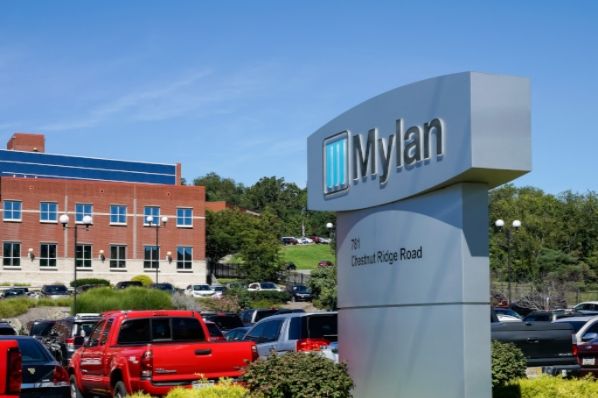Yesterday, Heather Bresch, the embattled CEO of the pharmaceutical company Mylan which produces the EpiPen auto injector took a verbal beating by members of Congress. A hearing will do nothing though to bring relief of severe allergy sufferers.
The House Oversight Committee spent 2 ½ hours laying into Bresch for why Mylan has spiked the costs of the EpiPen from about $57 in 2007 when it acquired the drug to over $600 today. They accused her of exploiting people with life-threatening allergies for profit, all while pulling down a hefty $18 million salary. Republicans and Democrats equally expressed their ire:
“I am a very conservative and pro-business Republican, but I am sickened by what I’ve heard,” Rep. John Duncan (R., Tenn.) said.
Rep. Gerald Connolly (D., Va.) said if he relied solely on Ms. Bresch’s testimony he would think “what humanitarians” those at Mylan are. “You virtually have a monopoly, and used it to your advantage; but unfortunately, it is at the expense of people who need it,” Rep. Connolly said.
…
“You never anticipated [an outcry]?” Rep. Jason Chaffetz (R., Utah), the chairman of the House Oversight and Government Reform Committee, asked. “You raised the price, what did you think was going to happen?”
Free-marketers didn’t even defend Mylan:
"As someone who considers themselves to be a free-market Republican, part of me has been uncomfortable with where this hearing has gone," said Rep. Mick Mulvaney (R-S.C.). "But I have to defend both my Republican and Democrat colleagues, because you asked for it. … If you want to come to Washington, if you want to come to the state capitols and lobby us to make us buy your stuff, this is what you get. You get a level of scrutiny and a level of treatment that would ordinarily curl my hair."
Bresch didn’t apologize, but insisted that Mylan isn’t making all of the profit they accuse the company of making.
in her prepared remarks she shifted blame to the healthcare industry and middle men who profit off of the discounts and rebates they offer on this drug. During testimony she dug her heels into her position:
“I think many people incorrectly assume that we make $600 off each pack. It’s simply not true,” Bresch said. “I think what is incorrectly assumed is that $608 is what Mylan received. We receive $200.”
But Chaffetz and other lawmakers repeatedly questioned Bresch’s responses to their questions.
“I don’t know that I believe you,” Chaffetz again repeated. Later, Rep. Stephen Lynch (D-Mass.) also pressed Bresch about the financial picture she presented.
“Your numbers don’t work based on the documents you’ve given us,” Lynch said, raising his voice.
As we have explained, Mylan enjoys the freedom to increase prices regularly because it has a monopoly on the market for adrenaline auto injectors. It has worked with the Food and Drug Administration (FDA), Congress and the Obama White House to secure protections and advantages in the market that lock out competition. For example, the FDA expanded the pool of customers that EpiPens specifically could be marketed to. In addition, the FDA has not approved alternatives for generic options from some of Mylan’s competitors. Safety is one thing, but the FDA doesn’t seem to have competition on its mind. As the Wall Street Journal reports, FDA officials also took some heat during the hearing for the alternatives that are missing from the market:
Last year, Sanofi SA recalled its Auvi-Q epinephrine injectors, which had been a rival to EpiPen, due to dosing problems. The “FDA cannot approve a product for which we have not received an application,” Dr. Throckmorton also said.
Despite the committee’s repeated questions, Dr. Throckmorton declined to say if the agency was reviewing any other applications and if so, how many.
In February, Teva Pharmaceutical Industries Ltd. said the FDA had rejected the company’s application for a generic version of Mylan’s product.
Mylan had challenged Teva’s application, arguing that differences between the two products endangered patients.
A new twist in this saga is a series of allegations that Bresch’s family were potentially part of creating a cozy relationship between Mylan and lawmakers, which led to financial gain for Mylan. Apparently, her mother headed a national association of education boards that pushed for state lawmakers to stock EpiPen’s in schools. Members of Congress were quick to jump on the connections:
In a particularly tense exchange, Rep. Tammy Duckworth (D-Ill.) questioned Bresch about a report by USA Today this week that said her mother had misused her clout on a school board to help boost EpiPen sales.
“Your own mother is lobbying to make sure they’re in your schools,” Duckworth, who is running for Senate this fall, shouted, holding up a copy of the newspaper.
Bresch interrupted: “I’m sorry, Congressman. That is completely inaccurate.”
Earlier in the hearing, Bresch had strongly denied the report detailing a concerted effort by Gayle Manchin — Bresch's mother, the Democratic senator’s wife and the then-president of the National Association of State Boards of Education — to push state lawmakers to support legislation mandating school systems to buy anti-allergy devices, such as EpiPens, back in 2012.
The Mylan/EpiPen saga is nauseating for regular Americans because we are reminded once again what happens when free-market competition is distorted by companies lobbying for special protections and advantages from Washington, state legislatures, and federal agencies. Small businesses don’t have that ability nor do regular Americas, but we are the ones who suffer.
Mylan is far from innocent, but neither is the FDA, Congress, the Obama Administration, and other organizations connected to this arrangement. This is what happens when big government and big business team up, we as consumers lose.


